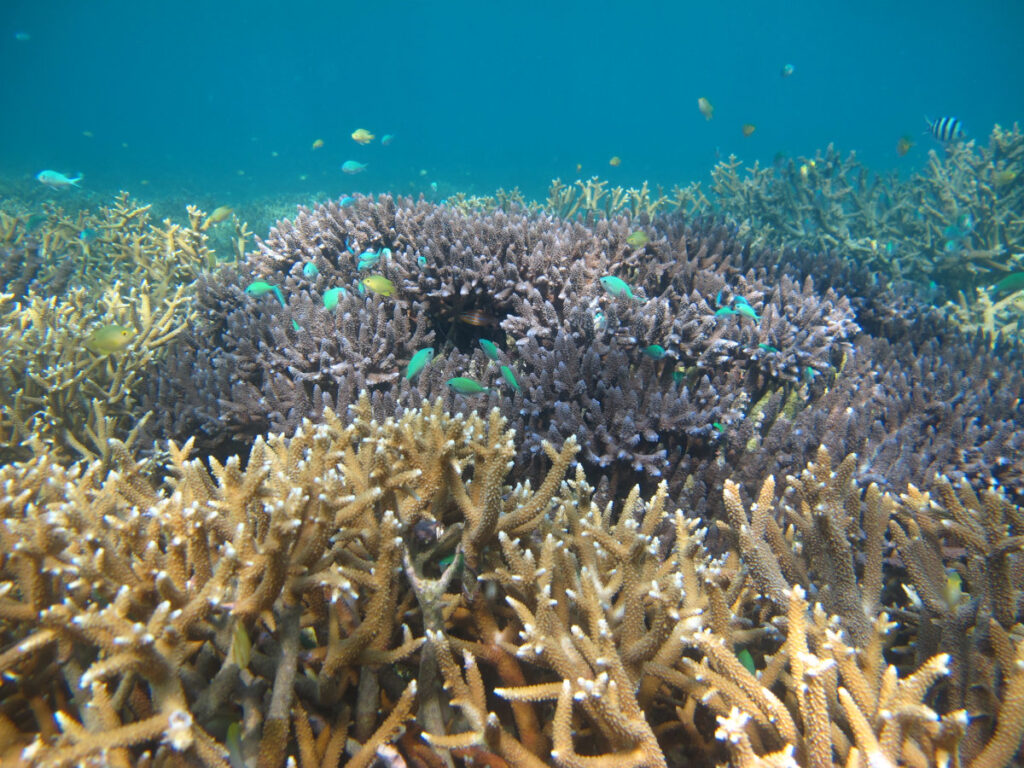[LUM#18] Coral resistance
Because we protect what we know best, researchers are delving into the genome of corals to identify what gives some of them a resistance to temperature that is very useful in these times when water temperatures are constantly rising.

More than 25% of coral reefs have died over the last thirty years. What caused this catastrophe? "The rise in water temperature, " replies Jérémie Vidal-Dupiol, a researcher at the Host-Pathogen-Environment Interactions*. This is because coral, a strange animal, lives in symbiosis with zooxanthellae, single-celled algae that provide coral with oxygen and nutrients in exchange for food and shelter. "But when the temperature rises, the symbiosis breaks down and the coral loses its zooxanthellae, which causes it to bleach." This phenomenon significantly weakens the coral and increases its mortality.
According to a study published by UNESCO in 2017, if ocean warming continues at its current rate, coral reefs could disappear by 2050 as a result of this thermal stress. So how can we preserve this unique biodiversity? "We are adopting protective measures, we are even restoring them by taking coral cuttings to transplant them elsewhere, but for the moment, none of this is being done in an optimized way," explains Jérémie Vidal-Dupiol. To make these measures more effective, the researcher is focusing on epigenetics. The idea is to use sequencing data to identify the epigenetic biomarkers of individuals that are best trained to cope with thermal stress and therefore most resistant to temperature increases. "These thermotolerant corals are the ones that will best withstand global warming, " says the specialist.
Temperature tolerance rating
To kick off this ambitious project, aptly named SAVE, we headed to New Caledonia, Fiji, and Tahiti to immerse ourselves with researchers who collected corals and their zooxanthellae to then subject them to "ecologically realistic" thermal stress in the laboratory . After a month and a half of monitoring, each individual is given a temperature tolerance score. "We will then identify the genetic, epigenetic, and transcriptomic biomarkers of these corals and their symbionts." This data is invaluable for restoration projects, as it will enable us to focus on individuals with the best adaptive abilities, and therefore the best chances of survival. "This information is also essential for conservation biology and ecosystem management, as it will enable us to better identify areas that need to be protected, " adds Jérémie Vidal-Dupiol.
To support managers in this task, researchers are also working in collaboration with the Sys2Diag laboratory. Sys2Diag laboratory on a revolutionary idea: "to develop, based on these results, a rapid thermotolerance test that will enable them to easily determine which individuals are most resistant to warming." For coral reefs, resistance is organizing.
*IHPE (CNRS, Ifremer, UPVD, UM)
Find UM podcasts now available on your favorite platform (Spotify, Deezer, Apple Podcasts, Amazon Music, etc.).